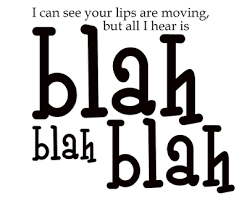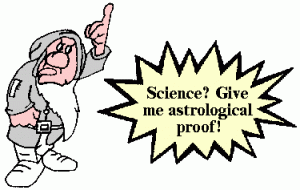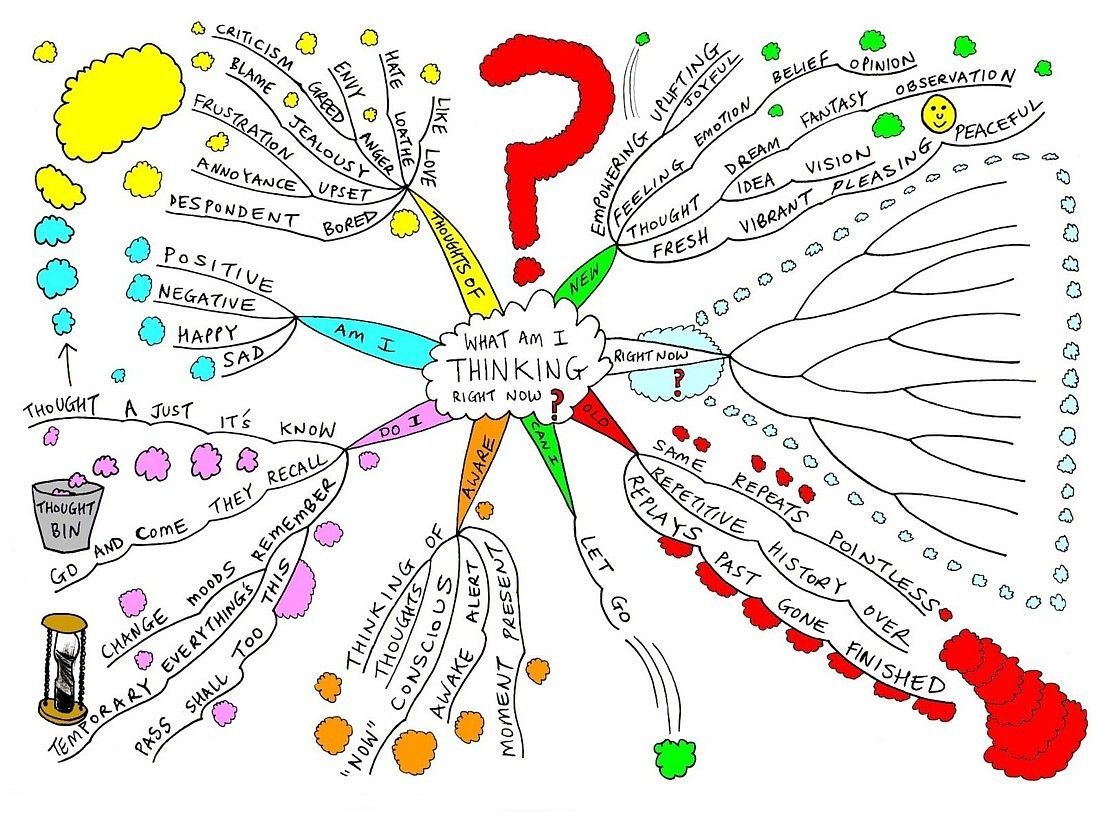 One of the more curious criticisms is that I’m somehow “against” a particular therapy. On the face of it, the criticism is quite perplexing: even a bit silly. I mean, I’ve only devoted 3+ decades to trying to help take care of horses, pretty much 24:7, so it would be pretty self-defeating of me to be against anything that might help me do that. Plus, I do have a veterinary license, and that entitles me to do, well, just about anything that I want. I could chiropract, or magnetize, or stem cell, or acupunct, or supplement or provide a whole smorgasbord of treatments, and probably significantly increase my bottom line in doing so. I’m not in a non-profit business, so, to some extent, it’s in my best personal financial interest to peddle as much stuff as I possibly can. Otherwise stated, why would I be against any therapy if I could make a profit from it?
One of the more curious criticisms is that I’m somehow “against” a particular therapy. On the face of it, the criticism is quite perplexing: even a bit silly. I mean, I’ve only devoted 3+ decades to trying to help take care of horses, pretty much 24:7, so it would be pretty self-defeating of me to be against anything that might help me do that. Plus, I do have a veterinary license, and that entitles me to do, well, just about anything that I want. I could chiropract, or magnetize, or stem cell, or acupunct, or supplement or provide a whole smorgasbord of treatments, and probably significantly increase my bottom line in doing so. I’m not in a non-profit business, so, to some extent, it’s in my best personal financial interest to peddle as much stuff as I possibly can. Otherwise stated, why would I be against any therapy if I could make a profit from it?
But, of course, me being me, I do like to do my readers the courtesy of seriously considering their comments (and criticisms), and, after some thought, I’ve decided that, yes, in fact, I am against a number of things, just as many of my colleagues are. So, by way of an open confession, I thought I’d list a few things that many of us are completely against, when it comes to therapies and treatments and ideas about things that are supposed to be medicine. Who knows, maybe you’ll find time to think about some of them, too.
I’m just going to guess that you’re probably against lying, too. But one big problem with many therapies and products is that the things that you may be told about them simply aren’t truthful. Another big problem with them is that you may not know that what you’re being told isn’t truthful, so you end up thinking that what is, in fact, not truthful, is really the way that things are.
Here’s an example. Let’s not get into a discussion about whether acupuncture is effective for any particular condition (I know some of you think that it is, and I understand that, and I’m not interested in this article to try to make you think otherwise). Regardless of effectiveness, it’s absolutely wrong for someone to tell you that the Chinese have treated animals with acupuncture for thousands of years, when there’s absolutely no evidence that’s the case. Whether acupuncture is effective for a particular condition can be tested. But there’s absolutely no excuse to make up stories about it’s longevity – unless you’re just trying to convince someone to try the therapy based on some false appeal to how long the therapy has been around.
In the same way, it’s wrong to say that a product has been “scientifically tested,” when it hasn’t been tested, or if there’s only one company-sponsored test that’s (surprise!) positive. Scientific testing requires a lot of work, and scientific consensus is hard to come by. Lying about the scientific basis for something is just wrong.
 2. We’re against selling things based on assertions that have nothing to do with whether the treatment is effective or not
2. We’re against selling things based on assertions that have nothing to do with whether the treatment is effective or not
That’s one of the big issues with selling products as, “Natural.” From an efficacy standpoint, the word, “Natural” is basically meaningless (although it’s generally used as a synonym for, “Good”).
BRIEF ASIDE: A number of years ago, I was drinking a can of Orange Crush® soda (for those of you that are concerned, I stopped drinking sodas about 15 years ago). And I noticed that it said it was, “All Natural.” I also noticed that one of the ingredients was “Pine Guar Gum.” Now guar gum is a thickener, and it’s used for everything from ice cream to cat litter (no, I’m not making this up – guar gum is used in some products to help cat litter clump when a cat pees in it). When I asked the as-I-recall-very-nice company representative how in the world drinking pine guar gum could be construed as “Natural” – I mean, I’ve had food cravings, but never for a pine tree – she said, “Pine trees are natural.” Case closed, for her anyway. Last can I ever drank.
OH, BY THE WAY – I just checked the OC website, it doesn’t have pine guar gum on the ingredients list. Just acacia gum (by the way, giraffes love acacia trees) and ester gum. And it doesn’t claim to be “Natural” anymore.
 But back to my point. I don’t really care if a product is natural or not. I don’t care if it’s based on the wisdom of the ancients, or if it’s an idea hatched up in someone’s garage. I just care if it’s effective for the purpose for which it is being used. And that requires testing.
But back to my point. I don’t really care if a product is natural or not. I don’t care if it’s based on the wisdom of the ancients, or if it’s an idea hatched up in someone’s garage. I just care if it’s effective for the purpose for which it is being used. And that requires testing.
Ditto, “New,” or “Promising.” Why in the world would you embrace a “new” treatment based simply on its promise? Add to that the facts that many of the old treatments work pretty well, and, often, nobody is actually keeping track to see if the promise is more than an empty one, and there may not really be much “there” there. Before I want to encourage people to use a therapy, I’d like to wait and see if it’s better than established alternatives. No reason to risk a bad outcome if an older treatment works pretty well, in my opinion.
So, many of us are against therapies that are pushed for reasons other than that they work.
 3. We’re against asking people to pay for experimental treatments without people knowing that they are paying for an experimental treatment
3. We’re against asking people to pay for experimental treatments without people knowing that they are paying for an experimental treatment
So, let’s say you go to your doctor. He looks at you, and he says, “I have this new treatment for you. I don’t really know if it works, but it is new, and a lot of people say they like it. Sounds promising. We’ll give it a go, but I won’t keep track of if it actually does anything, and you can pay as we go. You in?” What would you say?
This sort of thing goes on in the horse world all the time. From stem cells to magnetic therapies, from PRP to massage, treatments are offered to horse owners based mostly on things like promise, good intentions, and the occasional (though not always) plausible mechanism of action. Then, there’s precious little follow-up to see if treatments actually do anything. So, sometimes, you find yourself in a situation where your horse is actually in an experiment, he’s the only one in the experiment, and nobody is really following to see how it goes to see if everybody is just wasting their time (and nobody tells you that, either).
But you get to pay for it. I’m against that.
 4. We’re against people making vague, meaningless claims
4. We’re against people making vague, meaningless claims
This one’s for you, supplement industry. The industry is making a killing selling products based on the idea that they, “Support,” or “Assist,” or, “Optimize” this, that, or the other. And the terms means absolutely nothing. Nothing. If they’re any good, they have to do something, right? And if that’s the case, then come out and say what it is, and say it exactly. For goodness sakes, why in the world would you buy something if they didn’t tell you what that something does, without some specific detail?
It’s important that people be very clear about what they are doing.
 5. We’re against products not containing what they say they contain on the label
5. We’re against products not containing what they say they contain on the label
One of the big problems with herbs, supplements, and other “natural” products is that study after study – including several in horses – have shown that such products often don’t contain what they say they contain. For example, whether or not you’re a glucosamine advocate (I’m not) there’s not any way that a glucosamine supplement is going to work if there’s not any glucosamine in the supplement. Many studies have shown that lack of content can be a big problem in just about ANY supplement. Unless a product is forced to adhere to good manufacturing practices (GMP), I tend to be against it, simply because I don’t know what’s in it.
How do you feel about giving unknown amounts of anything to your horse?
6. We’re against therapies that make statements that can’t be be supported by a good amount of objective proof
 We know a couple of things. We know that a lot of medical conditions get better on their own. And we also know that even incurable medical conditions – such as arthritis – have their good days and bad days. So if, on the one hand, you give a treatment for a condition that is going to get better on its own, or if, on the other hand, you give a treatment on a bad day, that treatment might appear to work, at least for a time.
We know a couple of things. We know that a lot of medical conditions get better on their own. And we also know that even incurable medical conditions – such as arthritis – have their good days and bad days. So if, on the one hand, you give a treatment for a condition that is going to get better on its own, or if, on the other hand, you give a treatment on a bad day, that treatment might appear to work, at least for a time.
That’s why objective proof is so important to science-minded veterinarians, and it should be to you, too. Objective proof is a way to help keep you from wasting time and money, and to save your horse the annoyance of treatment. So, we’re against treatments that don’t have a pretty good level of objective proof, as in, a number of good scientific studies (just one doesn’t cut it, because flukes can always happen).
7. We’re against therapies or treatments that conflict with what we know to be true
 Here’s where things like homeopathy and “energy therapies” fall short. With homeopathy, we know that the more dilute we make something, the weaker (less concentrated) it gets. Thing about, oh, anything: gasoline, liquor, perfume, and innumerable other examples. The more dilute it gets, the weaker it gets. Except, of course, according to proponents, homeopathy (to see what happens when you complete dilute an internet link – CLICK HERE).
Here’s where things like homeopathy and “energy therapies” fall short. With homeopathy, we know that the more dilute we make something, the weaker (less concentrated) it gets. Thing about, oh, anything: gasoline, liquor, perfume, and innumerable other examples. The more dilute it gets, the weaker it gets. Except, of course, according to proponents, homeopathy (to see what happens when you complete dilute an internet link – CLICK HERE).
Same with folks who purport to move energy around. Energy is a thing. We can measure it. In fact, we can measure the energy in an electron, which is one of the subparticles of an atom: REALLY, REALLY SMALL. If some energy force were powerful enough to affect healing, it would certainly take a measurable amount of energy. But no energy movement has ever been measured when it comes to energy healing and “healers,” and people have tried. If people tell you they’re doing something with your horse’s energy, well, they’re just not, at least not if it actually requires energy to end up with a good result.
Now that’s not to say that we know everything – of course not. But we do know some things, and we know them with a great deal of confidence. That’s why many science-minded veterinarians (including me), are against things that conflict with what we currently know. Sure, something might come along to change everyone’s minds, but that would require a good bit of proof.
I think that there are definitely against some things that are worth being against. But if you look the list of objections over, which ones are you for?








